OCM
Biomass, Biofuels and Bioenergy
- Home -
- Ocm
Organising Committee Members
Speaker Details
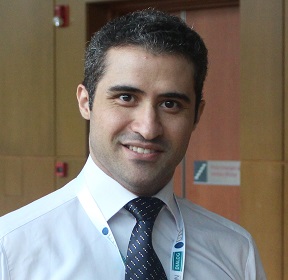
Omid Akbarzadeh Pivehzhani
Dr. Omid Akbarzadeh Pivehzhani is working with Nanotechnology and Catalysis Research Centre since 2016. His main research area is heterogeneous catalysis and catalytic reaction engineering. He has spent 10 years in academic-industrial projects as a research officer and post-doctoral. Dr. Omid has worked 5 years in the oil and gas industry as a chemical engineer. He developed advanced smart catalysts, especially for the oil and gas industries. Dr. Omid has contributed to two PETRONAS Research Sdn Bhd industrial catalyst projects and worked on an international Airbus R&D project in NANOCAT. Currently, he is the PI of the graphene catalyst project at Hokkaido University in Japan, project member of FRGS grant in UTP and assigned to the NANOCAT center project. Dr. Omid was the Chairman, keynote speaker and organizing committee of many international conferences. He is currently the supervisor of three Ph.D. students from different countries. He has published many ISI papers; book chapters and has two approved and granted patents. Also, he has hands-on experience and passed several pieces of training on handling different types of equipment which are being widely used for material synthesis, characterization and performance evaluation. He is in close collaboration with other departments, government agencies and universities around the world. He is visiting researcher of Jiangsu University China and Hokkaido University Japan. He is a member of the society of petroleum engineers (SPE) and Senior Member of Hong Kong Chemical, Biological & Environmental Engineering Society. Omid awarded a full fellowship from UTP during Ph.D. and were involved for lab demonstrator and teaching in the different courses of chemical engineering. He awarded Silver Medal in 27th International Invention & Innovation Exhibition (ITEX 2016), Kuala Lumpur Convention Center in Malaysia and Silver Medal of Post Graduate Research Project in the 35th Science & Engineering Design Exhibition (SEDEX 35).
Speaker Details
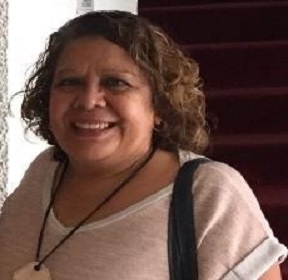
Leticia Lpez Zamora
Chemical EngineeringLeticia López Zamora is a chemical engineer by profession and a professor-researcher at the National Institute of Technology of Mexico, with a Master of Science in Chemical Engineering and a PhD in Engineering. For 17 year she has been working in the Graduate Studies and Research Division. As a professor she has taught several subjects, some of them are: optimization of processes, experiment design, plant design and optimization theory. For more than 10 years, she has been conducting research related to the generation of biofuels (1G ethanol, 2G ethanol, biodiesel), some of them with financed by Mexican institutions. Also, she has given conferences in various national and international congresses. She has directed more than 30 master's thesis and has been an evaluator of CONACYT, TecNM, PRODEP, among others
Speaker Details
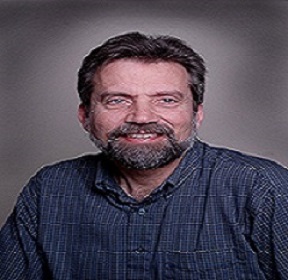
William F Anderson
USDAWilliam (Bill) Anderson is research geneticist at USDA-Agricultural Research Service’s Crop Genetics and Breeding Research Unit in Tifton, GA, and co-coordinator of the USDA Southeastern Regional Biomass Research Center. Bill develops germplasm of warm-season grasses and management systems to maximize biomass yields and desired quality traits for forage, biomass for bio-fuels and conservation. He has been on numerous ASA committees and was elected chair of the Agronomic Production Systems for 2017. He has authored 75 peer-reviewed publications. Anderson is nationally and internationally known for work in biomass for energy research and has had numerous invitations to present his research at national and international conferences. He is active in the American Society of Agronomy, Crop Science Society of America, and the American Forage and Grassland Council. Anderson is an adjunct professor with the University of Georgia and has served on numerous graduate student committees.
Speaker Details
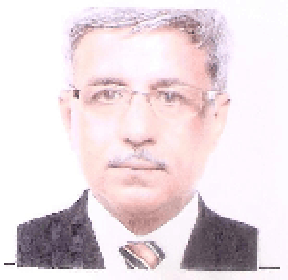
INDU SHEKHAR THAKUR
Jawaharlal Nehru UniversityProfessor Thakur, FNASc, FNAAS, FIBA, FBRS, ENESA, Former Dean, presently a Professor in the School of Environmental Sciences, Jawaharlal Nehru University, New Delhi, developed bacteria by genetic breeding, and characterized by genomics, proteomics and metabolomics for Green House Gases sequestration for biofuel, bioflocculant, bioplastic and biomaterials production. Microorganisms applied for degradation of pentachlorophenol in tannery, lignin biovalorization, degradation of melanoidin, dioxin-like compounds, ecoestrogens, phthalates and emerging contaminants in industries, municipal sludge, landfill leachate, risk assessment and characterization was performed. Cyanobacteria and algae used for biofuel and biodegradation of emerging contaminants in waste water and risk assessment. Metagenomics of microbes from Pangong lake, caves and lysimeter performed for environmental management, pesticide degradation and nutrient management. He published more than 200 research papers in peer reviewed journals, 4 patents and 26 Ph.D. students completed Ph.D. under his supervision.
Speaker Details
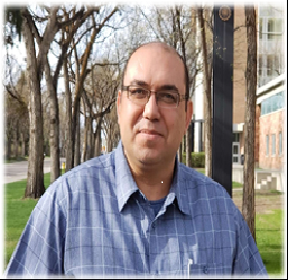
ELSAYED ELBESHBISHY
Ryerson UniversityDr. Elsayed Elbeshbishy is an assistant professor at Ryerson University. He is collaborating with different Canadian industries and municipalities for developing new technologies for value-added products recovery from wastes. He investigated different pretreatment technologies for enhancement of biohydrogen and biomethane production from municipal solid wastes. He introduced ultrasonication, for the first time, as a novel pretreatment method for enhancing biohydrogen production from solid waste as opposed to the common application of ultrasonication prior to anaerobic digestion to enhance methane formation. He has more than 50 peer-reviewed journal article, 70 conference proceeding, and three book chapters with h-index of 22. Dr. Elbeshbishy focuses on developing new solid pre-treatment technologies to enhance the anaerobic digestion process.
Speaker Details
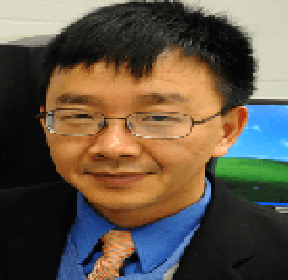
HUIMING YIN
Department of Civil and Environmental EngineeringDr. Huiming Yin received his Bachelor degree from the Hohai University, China, in 1995, Master Peking University, China, in 1998, and Ph.D. The Iowa University in 2004. Before joining Columbia University in 2008, Dr. Yin was employed by Caltrans as a Civil Engineer, for two years and by University of Illinois at Urbana-Champaign as a Post-Doctoral Research Associate in the Department of Civil and Environmental Engineering for two years. Dr. Yin’s research focuses on the multiphysical and mechanical characterization and modeling of civil engineering materials and their applications in energy-efficient infrastructure systems. He received the NSF CAREER Award in 2010. He founded the Pao Sustainable Engineering and Materials Laboratory, and serves the Site Director of NSF IUCRC Center for Energy Harvesting Materials and Systems. Dr. Yin has actively worked with Columbia Technology Ventures for commercialization of the applied research through small business companies and start-ups. From his research, two STTR projects have been awarded by DOE (for solar roofing materials) and AFOSR (for particulate composites), respectively. He is the leading author of the book - The Introduction to Micromechanics of Composite Materials, CRC Press and Spon Press, 2016, and has authored or co-authored 4 other book chapters and >70 refereed journal papers.
Speaker Details
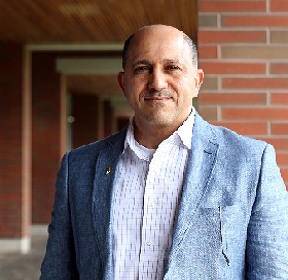
Dr Hossam Gaber
Dr. Hossam Gaber is leading research in the area of waste-to-energy with advanced plasma technologies. He worked in international research projects related to biomass/biofuel (Japan), plastic production chain with recycling (Japan), and leading research group to plasma-based plastic-to-oil pyrolysis and MSW gasification process technology. He the founding chair of the IEEE technical committee on Intelligent Green Production Systems (IGPS) and Editor-in-Chief of the International Journal of Process Systems Engineering (IJPSE). He is expert in intelligent safety and control systems and their applications on clean energy technologies. This research facility will extend the research capabilities in the research group within UOIT and will allow ROI for energy from waste. It will support the research activities in plasma generation, diagnostics, and control, and their applications on high performance waste-to-energy process technology.
Speaker Details
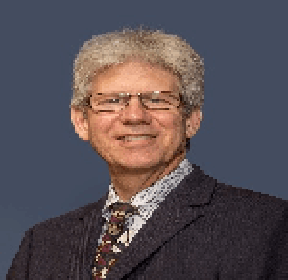
MARC A ROSEN
University of Ontario Institute of TechnologyMarc A. Rosen is a Professor at the University of Ontario Institute of Technology in Oshawa, Canada, where he served as founding Dean of the Faculty of Engineering and Applied Science. Dr. Rosen was President of the Engineering Institute of Canada. He is a registered Professional Engineer in Ontario, and serves as Editor-in-Chief of several journals and as a Director of Oshawa Power and Utilities Corporation. With over 60 research grants and contracts and 800 publications, Dr. Rosen is an active teacher and researcher in sustainable energy, environmental impact, and energy technology (including renewable energy and efficiency improvement). Much of his research has been carried out for industry, and he has written numerous books. Dr. Rosen has worked for such organizations as Imatra Power Company in Finland, Argonne National Laboratory near Chicago, and the Institute for Hydrogen Systems near Toronto. Dr. Rosen has received numerous awards and honors, and is a fellow of several societies and organizations.

